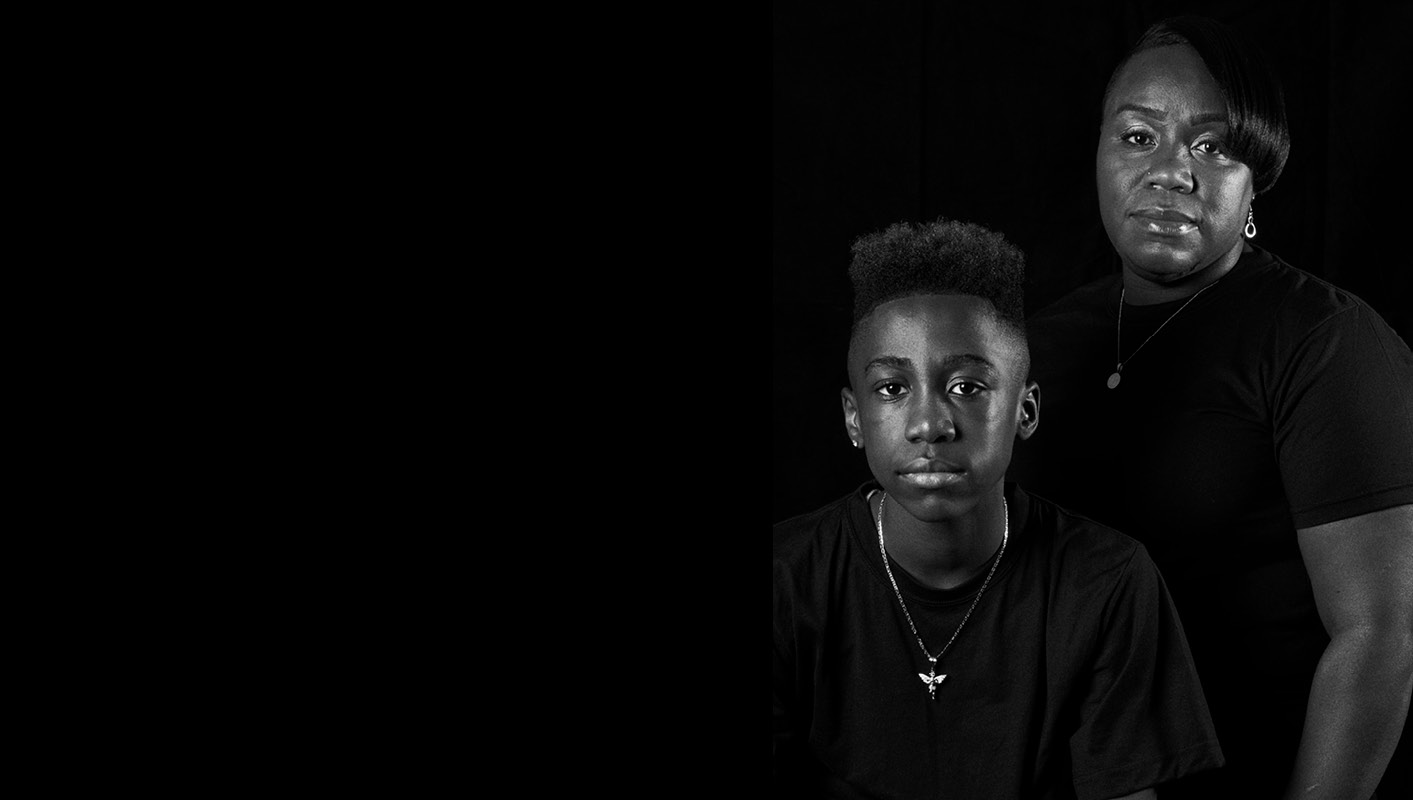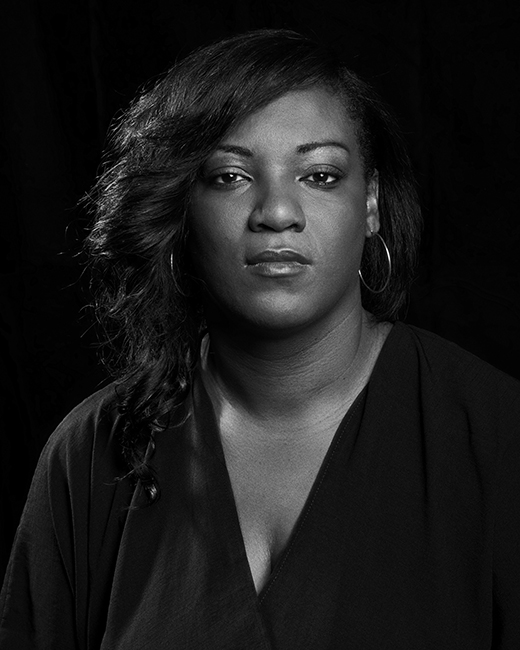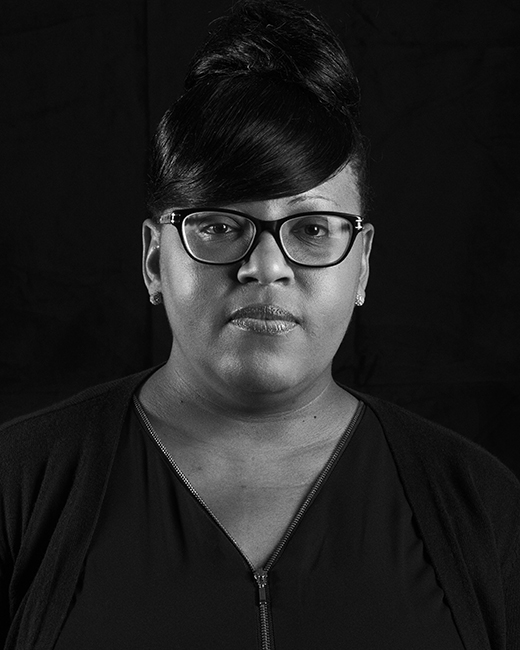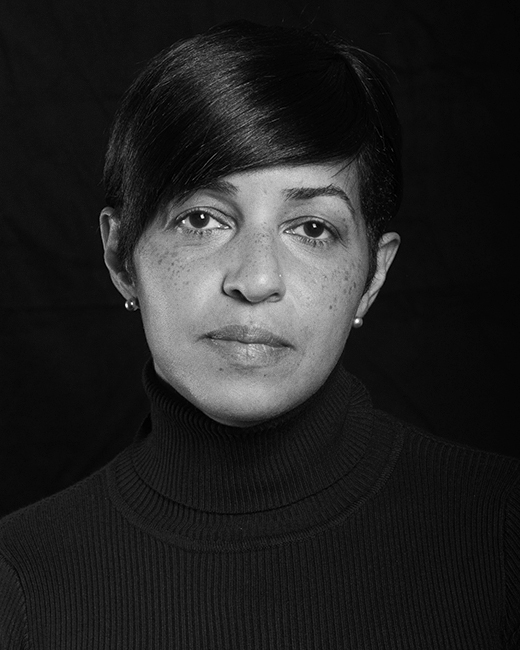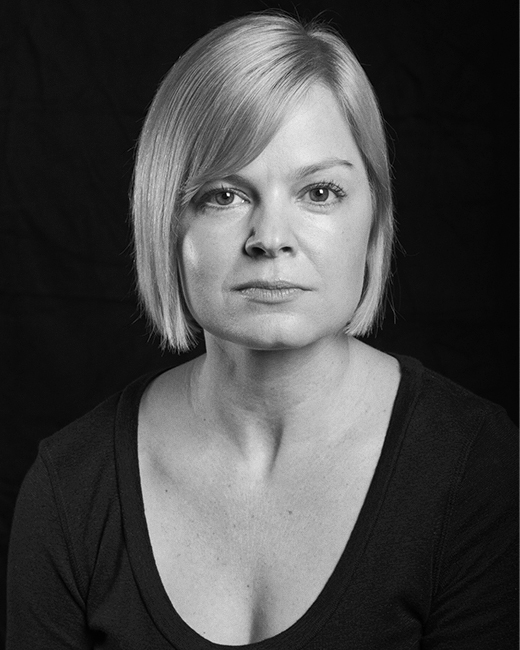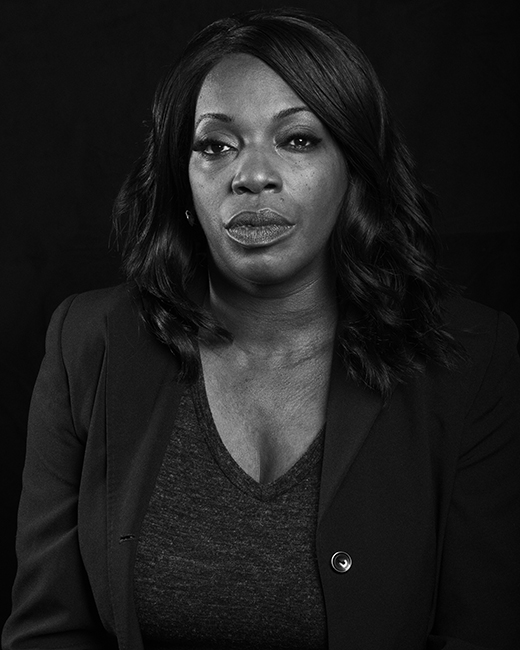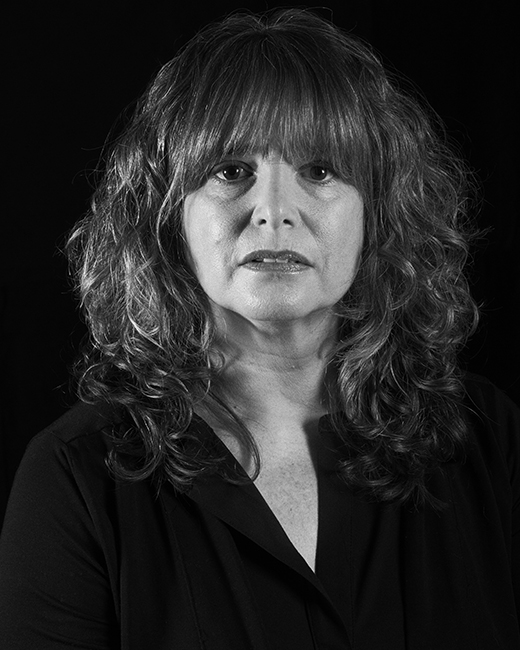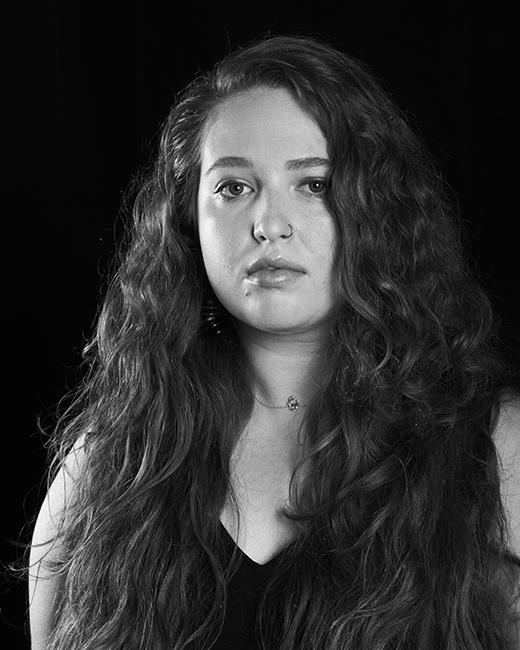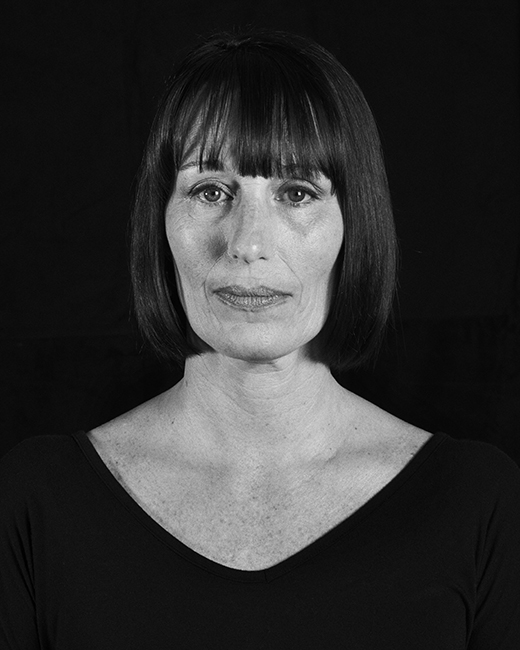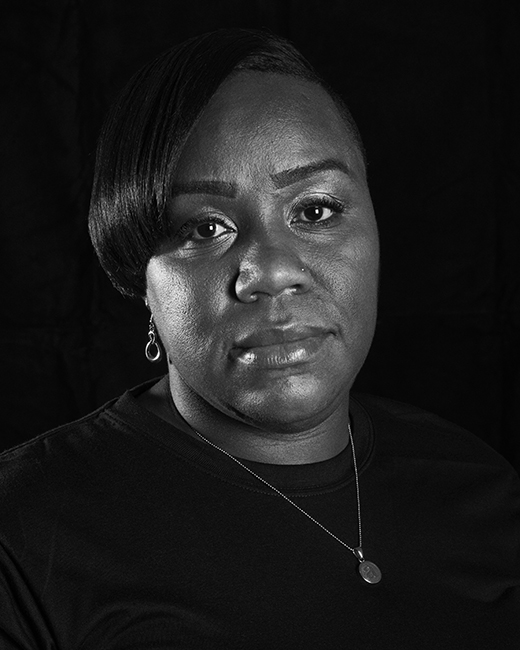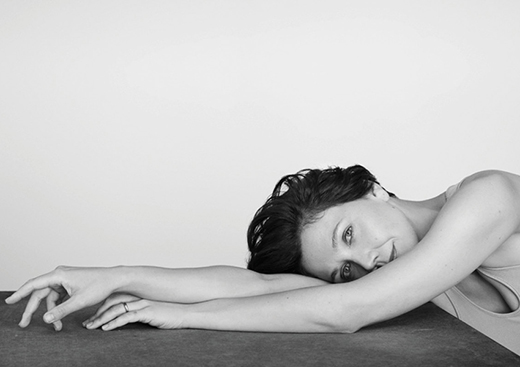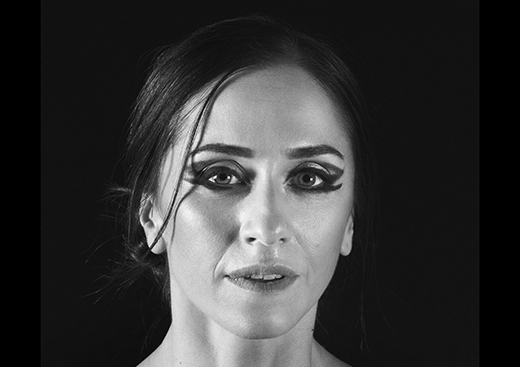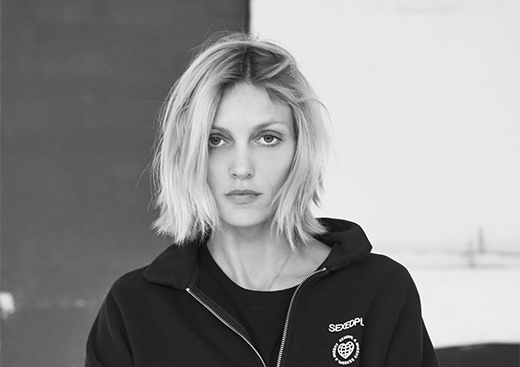Gun violence threatens our most fundamental human right, the right to life. It creates a destabilizing sense of fear, that impacts our communities forever. Annually, nearly 2,900 children and teens (ages 0 to 19) are shot and killed, and nearly 15,600 are shot and injured—that’s an average of 51 American young people every day. The women survivors portrayed in this portfolio are a very small percentage of the thousands of women that have lost their children, family members, colleagues, neighbors, and friends. Every story is unique and heartbreaking, and unfortunately thoughts and prayers will not bring those lives back. I admire the strength of these women to share their stories, build awareness and help others who are living with this devastating reality. There is a lot of work to be done. We need legislative changes and more regulations to prevent the continuation of senseless deaths from mass shootings. To change this narrative, we all have to take part in rewriting the story. We need to educate all generations to have stronger values of tolerance, respect and acceptance so we can learn from our differences instead of ignoring them or fighting against them. We cannot pass on a future of fear to our children. We cannot accept that our legacy is one of hatred and violence. We must act now to offer them a future we are proud for them to inherit.
DEANDRA YATES
At 13 years old, my son DeAndre was a high honor roll student in the seventh grade. The only trouble I was worried about was Dre talking too much in class or clowning around, trying to be the center of attention. But five years ago a stray bullet changed our lives when I reluctantly allowed him to attend a 15 year-old’s birthday party and the house was shot up 22 times. Dre got hit on the left part of his skull, which left him non-verbal and unable to move. Every day is a fight for survival, but Dre, who is now 18, has shown so much resilience. I created a support group in Indianapolis, just so I could share my highs and my lows with other mothers who really knew where I was. Any moment can be a trigger—a song, a smell, a TV show can send one of us spiraling down into a moment of sadness. I talk to the ladies about self-care and taking time out to make yourself happy, and being okay with being happy. My son used to say, ‘When life gives you chocolate, make Hershey’s.’ So, that’s what I tell people now. Make the best out of everything that you can because life can change in the twinkling of an eye.
JULVONNIA MCDOWELL
My baby son JaJuan was this loveable kid. He was shy at times, but once he got to know you, he would warm up and he would always have this big smile on his face. He loved animals, especially reptiles, and was very artistic. In April 2016, JaJuan was visiting family for spring break when I received a call that he had been unintentionally shot. The little boy that was responsible was my brother’s stepson, who was 13 at the time. My brother knew there was a gun in the house, but he didn’t store it or lock it away. JaJuan was 14, and about to graduate middle school. It’s been a big blow to our family. I would love for my nieces and nephews who didn’t get a chance to meet him to know that they had a big cousin who was grateful and loving and caring. No one should be burying a child under these circumstances, and so I would tell other mothers to get out there and advocate for common-sense gun safety legislation. It truly takes a village to raise—and save—a child.
GIOVANNA RODRIGUEZ
When he was around, the gun was always there. It was in the car, on the dining room table, on top of the bureau. Even during happier moments, when everything was running smoothly, it was present. I have two sons, and we’ve all been affected by the abuse we went through. Many victims of domestic violence feel like we don’t have a voice because we’re stripped of that confidence. Prior to being in this abusive relationship, I didn’t really question myself much. I am still trying to find myself, but I’ve learned that I am more resilient than I could ever have imagined. I still walk around with fear, knowing my abuser is out there. I know my life was spared so I could make a difference for other victims. Unless the universe has other plans for me, I’m not going anywhere. Our stories need to be told and heard, I am going to keep going.
AMANDA JOHNSON
I grew up in deep east Texas as part of a family that hunted and had plenty of guns around. Shooting became a hobby for my little sister, Leslie, and my father. Leslie was the baby of the family, and had this larger-than-life personality. But from the age of 13 on, she started suffering from depression. And just a few days before her 24th birthday, she committed suicide. Ninety-one percent of people that attempt suicide, but do not die, never attempt suicide again. There are no second chances with a gun. Leslie used a gun that had belonged to my grandmother, which she knew was hidden under my mom’s mattress. There’s no blame in this scenario, but I wish the medical professionals that deal with this sort of depression would be really forthright and honest with the families and say, ‘This is long term. We can’t cure your loved one. Get deadly weapons out of the house.’ There’s that silly Instagram phrase we’ve all read—‘Be nice to everybody because you never know what somebody’s going through.’ Before Leslie’s death that was just a trite phrase and now it is deeply engrained in my heart. Everybody is going through something hard and you just don’t know about it.
SHENEE JOHNSON
When my son Kedrick was four, his aunt and I asked him what he wanted to be when he grew up. Kedrick said, ‘I can take Bill Clinton’s job. It will be hard, but I know I can do it.’ My child was thinking about becoming a black president before there was one. I took him with me to vote for President Obama. He was a great child with so much going for him. That was all taken away when Kedrick was murdered with an illegal gun in 2010 at age 17, just a few weeks before he graduated high school. I was always worried about gun violence because when you’re raising a black male, it’s always in the back of your mind. When Kedrick was 11, my fiancé was killed by gun violence. I did everything to keep Kedrick away from bad influences, and he was still killed. When I realized there were other mothers out there like me who had lost children to gun violence, I decided I was going to become an activist and dedicate my life to this. That’s what keeps me going.
ABBEY CLEMENTS
I was a second-grade teacher at Sandy Hook Elementary School in Newtown, Connecticut at the time of the 2012 shooting. My students survived, and I have been a gun violence prevention activist ever since. My daughter, Sarah, was 16 at the time of the shooting and she was in lockdown at the high school. She became an activist overnight. She just continues to inspire me and did so from the beginning. I said to her, ‘In just a few months I’ll join you, I promise.’ I would not have gone to my first Moms Demand Action meeting were it not for her. Every teacher who goes through something like this is profoundly changed, but what we do is teach and so we hold onto those things that we know. And that’s connecting with children and doing the best we can to provide an empowering, happy classroom, to the best of our abilities in spite of what we went through, and what we know can happen again.
SARAH CLEMENTS
There are a lot of factors that go into the problem of gun violence. I think the root of the issue is that we have over 300 million guns in the country. We have to pass better laws and have leaders in power that believe in regulations on the amount of guns that are in our homes and on our streets. Every time there is a mass shooting people buy more guns out of fear. This is a public health crisis, like smoking or car accidents, that we need to study and form policy around to ensure lives are not lost anymore. We haven’t had comprehensive federal studies about gun violence in over 20 years. When I was in high school, I was personally impacted by gun violence. My mom was a teacher that survived the mass shooting of Sandy Hook Elementary School. I was just down the street when the shooting happened. I heard that one of the ways to heal in the aftermath is to take action. I have been an activist against gun violence for six years now. The first step that we should take is to educate ourselves and then get involved. Young people are the most disproportionally impacted. If you are a young person that wants to lead, forge that path and just keep going.
TIA CHRISTIANSEN
I used to work in the music industry. It was this really rich, incredible part of my life. My work led me to the Route 91 Harvest Festival in Las Vegas in October 2017. That night I was in my hotel when a shooter, who was one room away, opened fire from the 32nd floor on the concertgoers below. I spent the next 90 minutes texting with my coworkers to find out if they were safe, and sat alone in the dark, wondering when gunfire was going to come spraying through my room. Today, there are mental faculties I used to have that no longer exist. Trauma remaps your neural pathways. I had to leave a 20-year career behind. That was my love. That was something I dreamed of doing my whole life. Since the incident I’ve been to one concert where I wasn’t working. It is so uncomfortable for me because all I can think about the whole time is, what if, what if, what if? Do any of these people know where to go? Do any of these people know what to do? And what can I do to protect them?
NATASHA CHRISTOPHER
I never worried about gun violence affecting my family because I thought it mostly happened to kids doing things they weren’t supposed to. I thought if I did everything right—making sure my children stayed in school, got good grades and stayed away from negative stuff—that they would be safe. But on June 27, 2012, my 14 year-old son Akeal Christopher was shot in the back of the head at a graduation party in Brooklyn. He survived for 11 days, and died on his 15th birthday. Akeal was a caring young man who loved giving to those less fortunate. He had hopes and dreams of becoming an engineer, but all that was cut short. My other sons haven’t been able to have a normal life since he died. I was already overprotective but I became even more so, trusting nobody with my children and always being concerned about their safety. My son Christopher Underwood took his brother’s murder pretty hard. He suffered from nightmares and became this angry kid who was so lost. I had to find a way to save my son, so the only thing I thought I could do at the time was to allow him to have a voice and speak up against what happened. That’s how he became an activist—by speaking his mind about how he feels about gun violence. In the survivor movement we like to say that we belong to one of the shittiest clubs in the world. My ultimate goal is to not have another parent have to become part of this club, but also to have common sense gun laws passed. Guns are coming in from states that have lax gun laws and it’s destroying the urban community.
—


